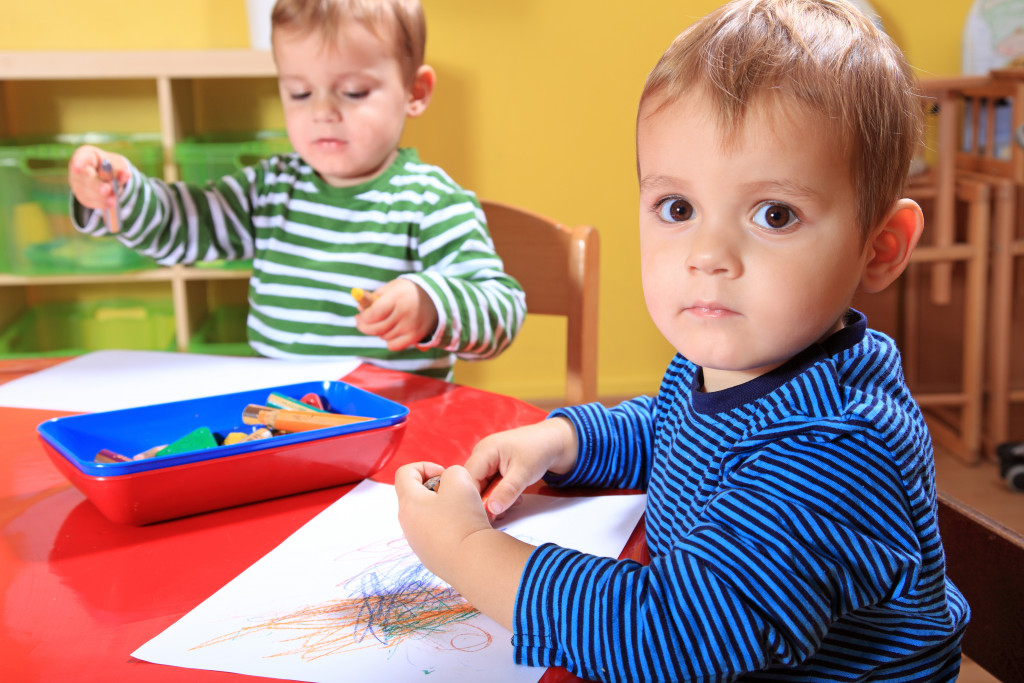Shyness in kids is seen as an adorable trait. While some kids are comfortable meeting new people and interacting with adults, others are slower to warm up and be sociable. Parents believe that their children will eventually grow out of it. The child will be more confident as they age.
There is nothing wrong with being shy. Among children, shyness is a part of the way they respond to the world.
However, there comes a point when shyness becomes a problem. In some cases, the shyness of a child becomes severe and disabling. Children with extreme shyness do not adapt well inside the classroom or playground. They also might find it difficult to make friends with their peers.
The longer it goes on, the worse it will get. Timid children might grow up avoiding social settings.
Here are a few things that parents and educators can do to help a child be less shy.
The Importance of Early Childhood Interactions
Socializing is a learned ability. People who can immediately form connections with those around them gained the skill through years of practice. A person who was extremely shy during childhood might not get the same opportunities to hone their communication skills as their peers.
Children, as early as possible, should start to socialize. They must have interactions not only with their family but other kids their age. Through these interactions, children develop their sense of self, learn what is expected of them, and other skills that they will carry through adulthood.
Enrolling a child into a pre-kindergarten program allows them to befriend kids their age. They become more comfortable interacting with their peers. Moreover, they also can engage in positive and stimulating conversations with adults. According to previous research, those who had intentional and reciprocal interactions with educators are more confident, happier, healthier, and more excited to learn.
Avoid Using the Word Shy
Shyness among children is not a flaw. It is natural. However, adults, especially parents, should avoid referring to children as shy because they tend to internalize it. They label themselves as shy and play that role. They do not make an effort to become more outgoing.
Adults can instead explain to others that the child needs time to warm up and become comfortable with people they just met.
Praise Courageous Actions
Rewards are great motivators. Children whose behaviors are praised and rewarded will learn to do it again and again.
React positively whenever a child does something outgoing. Even if there is only a little improvement, celebrating their actions assures them that they are on the right path.
A parent or an educator can, for example, give a child a sticker or chocolate for acting outgoing during an event. Over time, they will overcome their shyness.

Be Outgoing
Children model their behavior from what they see from adults around them. People who do not invite anyone over, do not have close friends, or do not speak to strangers tend to have shy children.
Parents should therefore be comfortable with socialization if they want their children to be more outgoing. They should invite friends and extended family over regularly. They should strike up a conversation with strangers while outside. When their children refuse to play with kids their age, talk to those kids, too. The shy child will observe how to interact with others by watching their parents be social, and it assures them that there is nothing to be scared of.
Speak to a Psychologist
Sometimes, there is a reason behind a child’s shyness. While it is normal for children to feel shy, anything severe or extreme needs to be examined by an expert, especially if it is already causing them distress. If a child, for example, feels lonely or nervous whenever they go to school, it is time to see a psychologist.
Timid children may develop social anxiety disorder or social phobia. The condition prevents people from doing tasks that other people consider “normal,” such as making small talk. They avoid situations where they would have to talk to other people. The condition can ruin their life.
If shyness in children does not seem to change over time, a mental health expert might figure out why they are uncomfortable with social interactions and may coax the child into being more outgoing.
Shyness in children is normal. However, shyness can set them back from learning and meeting friends. Adults can take make them feel more comfortable with interactions.
